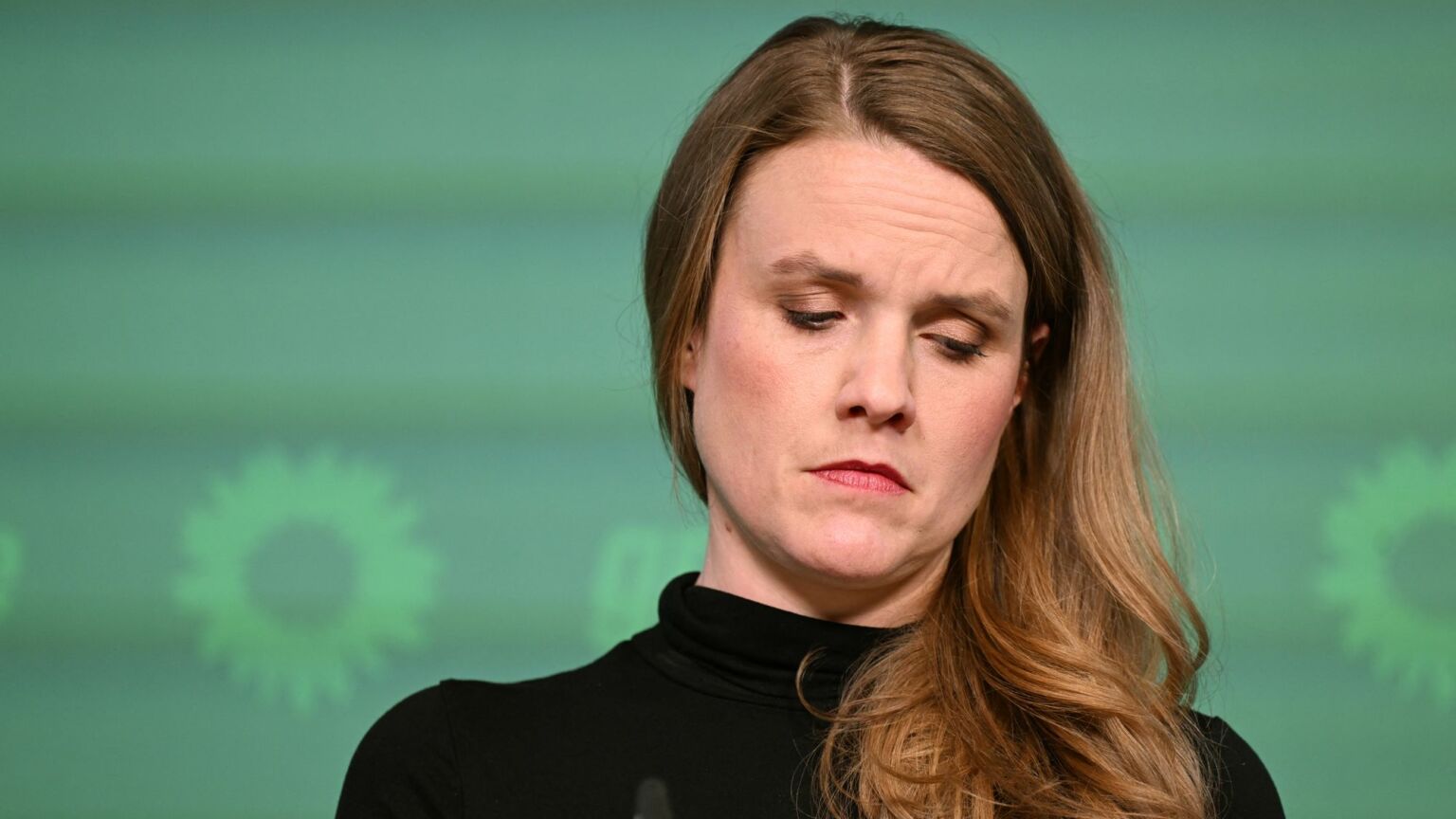In 2019, Green parties achieved their best ever European Parliament election results. They even topped the polls in some member states, including Germany. Europe’s cultural and political elites could barely conceal their delight at the time, viewing the rising support for the Greens as an endorsement of their own managerialist mission to tackle the so-called climate emergency. The EU’s technocrats seized their chance. Within months of this alleged ‘green wave’, Brussels pushed through its Green Deal, which committed all member states to Net Zero, or carbon neutrality, by 2050. European Commission president Ursula von der Leyen hailed the Green Deal at the time as ‘Europe’s man-on-the-moon moment’.
Things look very different today. As the results of last week’s European elections show, support for Green parties has dropped off a cliff. There were exceptions, such as in Denmark, where the Greens polled well. But overall, their vote fell sharply across the EU. The results are yet to be finalised, but it’s expected that the Greens / European Free Alliance political group has lost 18 of its 71 seats in the European Parliament.
The evaporation of 2019’s ‘green wave’ has also affected the Greens’ centrist fellow travellers – that is, those leftish and centre-left parties who have tended to promote a very green-adjacent agenda. Their European parliamentary group, Renew Europe, is expected to lose 23 of the 102 seats it picked up in 2019.
The collapse in support for the Greens was especially pronounced in the EU’s two key member states, France and Germany. The French Greens’ vote plummeted from 14 per cent in 2019 to just over five per cent this time, only just exceeding the five per cent necessary to gain any seats at all in Brussels. They finished seventh overall.
The German Greens, currently in a coalition government in Germany, arguably the most successful of all Europe’s green parties, fared no better. Their vote fell from 21 per cent in 2019 to just 12 per cent this time.
The reason why European voters have turned away from the green agenda over the past five years is not hard to fathom. It’s because during that time the impoverishing, immiserating reality of Net Zero has really started to hit home. The EU’s much trumpeted Green Deal, committing member states to various decarbonising rules and targets, has started to feel less like ‘a man on the moon moment’ and more like a boot on Europe’s neck.
Even von der Leyen herself, conscious of the growing unpopularity of the green agenda, has started to retreat on key aspects. Since the turn of the year, assorted Green Deal proposals and targets have been scrapped, including plans to reduce non-CO2 emissions in agriculture by 30 per cent by 2040. Most striking of all, she and her European People’s Party (EPP) group have approached the Social Democrats (S&D) and the Renew group, to form a majority in the next European parliament, steadfastly avoiding the Greens.
The Greens’ disappearing support is not a surprise. Stirrings of revolt against Europe’s Net Zero tyranny actually started to appear in 2019. That was when Dutch farmers first took to the streets in protest against the government’s plans to cut farms’ nitrogen emissions to EU-approved levels. Given farmers rely on nitrogen-rich fertilisers to maximise their crop yields, and the fact nitrogen emissions are a byproduct of animal farming, this move threatened their very livelihoods. Vast numbers of farms were set to be culled, all in the name of the EU’s Net Zero crusade.
Since the Dutch farmers began their revolt against eco-policymaking five years ago, farmers in Germany, France and elsewhere have followed suit. Their grievances differ. In the Netherlands, they objected to nitrogen-emissions targets. In France and Germany, they fought back against their governments’ EU-endorsed plans to reduce or cancel farmers’ tax breaks on diesel. But their protests are united in their opposition to the same thing – namely, Net Zero rules drawn up by distant EU technocrats that threaten farmers’ ability to make a living.
Europe’s farmers have arguably just been the canaries down the carbon-free coalmine. As the deleterious impact of Net Zero on people’s livelihoods and living standards becomes clear, more and more working people are starting to resist. In Germany, the coalition government nearly collapsed over its attempts to ban new oil and gas heating systems from 2024. In Italy, the EU’s ban on the sale of fossil-fuel-powered cars by 2035 is causing enormous consternation – which is hardly a surprise given the manufacture of combustion-engine cars makes up five per cent of Italy’s economic output.
At last week’s European elections, voters weren’t just turning against the green parties. They were rising up against the broader green agenda and the threat it poses to living standards and liberty. Long may the green-lash continue.
Tim Black is a spiked columnist.
To enquire about republishing spiked’s content, a right to reply or to request a correction, please contact the managing editor, Viv Regan.

